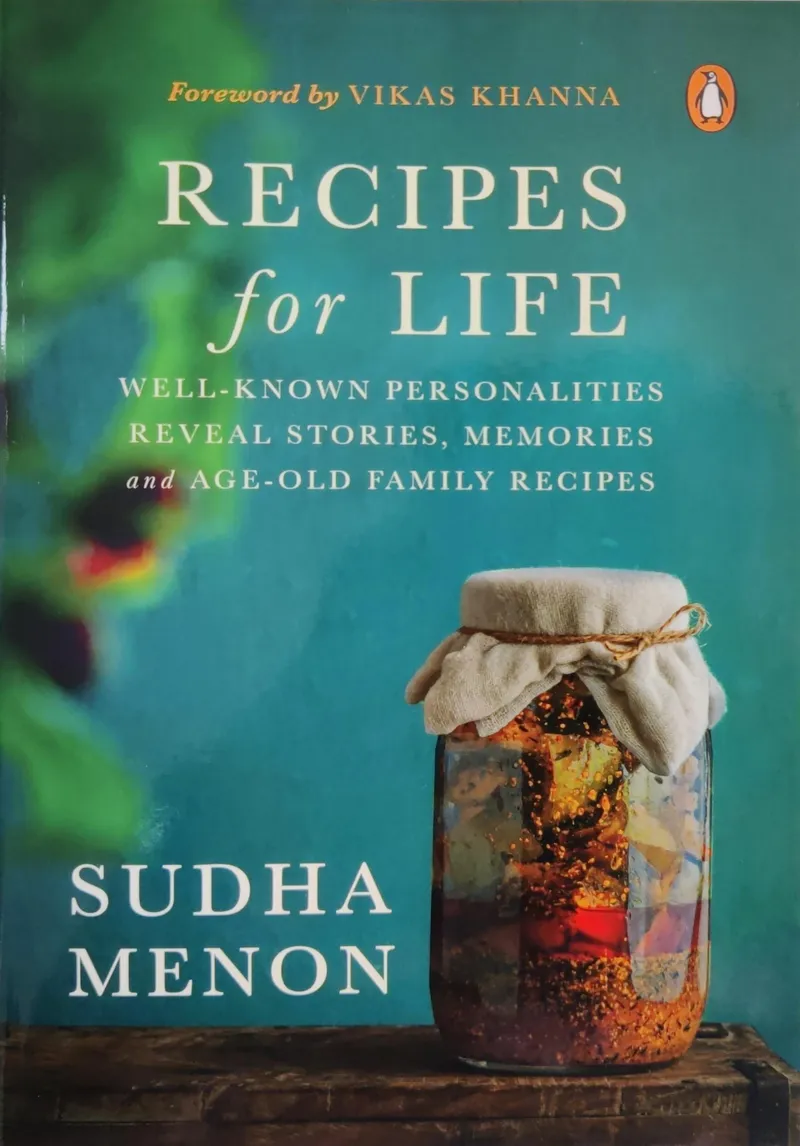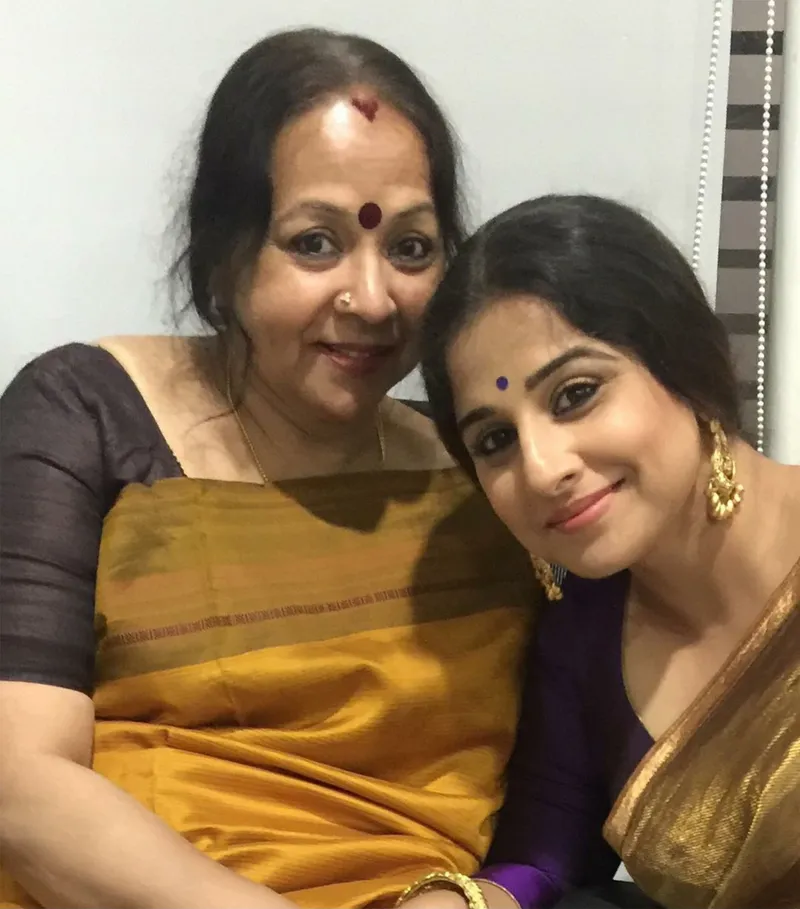From Vidya Balan and Mary Kom to Irfan Pathan and Uday Kotak: 30 personalities share their mother’s recipes in Sudha Menon’s new book
Recipes for Life by Sudha Menon is an interesting collection of food memories of 30 personalities who recount the smell, taste, and aroma of their mothers’ favourite recipes.
Author Sudha Menon’s new book, Recipes for Life is both, an ode to food and to mothers. She has spoken to 30 personalities from different fields and documented their mother’s recipes in the book, a repertoire of food that symbolises a mother’s love, home, and memories.
Whether it’s boxer Mary Kom, banker Uday Kotak, Michelin star chef Atul Kocchar, or politician Shashi Tharoor – Sudha’s list is exhaustive and replete with interesting reminiscences.
“The idea of Recipes For Life germinated from two very deeply personal experiences. When my mother descended into deep depression after the death of my father a few years ago, we tried everything to get her out of her grief. When everything failed and we were fearful of losing her too, miraculously one day I found that she was beginning to engage with me when I talked to her about her childhood and the food she ate growing up in our ancestral home in Kerala,” she says.
This prompted her to talk to her mother every day about food, a topic that she was passionate about. Soon the conversations became cooking sessions and Sudha started writing down her recipes. She soon realised that food has the power to heal.
A few months later, Sudha’s mother-in-law, a fabulous cook, passed on, ravaged by dementia. With her went recipes that had come down generations because none of her children had bothered to take notes.
Sudha explains: “When I looked around, I saw this was the story of most Indian families. Recipes are just orally passed down generations from mothers and mothers-in-law to daughters, sisters, sons, and sons-in-law with almost no attempt to document them. Food is an important part of our cultural identity and we are in the danger of losing a part of ourselves if we don't document those recipes. That is how Recipes For Life came along.”
In a conversation with HerStory, Sudha talks about the inspiration for the book, interesting experiences with featured personalities, and her personal favourites.
Edited excerpts from the interview:
HS: What are your earliest memories of your family's food? Any interesting experiences?

SM: I love homemade, mindfully made food. The simplest dish made at home by someone who loves her/his craft is what appeals to me.
I do have a troubled relationship with food occasionally because my daughter, Nayantara Thomas, is a pastry chef and I simply cannot resist the temptation of something divine that is offered to me. The blessing here is that we live in different cities and so I am not able to access the goodies in her refrigerator very often.
My earliest memory of Amma's food is of the amazing variety of stuff she prepared.
She herself loved eating scrumptious savouries and desserts and our home would inevitably have hot snacks at home including Punjabi samosas, potato vadas, unniappams and banana fritters. Not to forget the dahi wadas and nankhatais that she baked for us (wheedling the friendly neighbourhood baker to allow her to use his oven for the purpose).
Amma believes that there is no ailment that a couple of idlis, podi, and coconut chutney cannot cure. Or rice with sambar, pappadum, and mezhukkuvaratti (stir-fried veggies with coconut shavings).
HS: How did you zero in on these personalities to speak of their favourite food?
SM: I did not consciously go about looking for the people in the book. They are there because each has an interesting narrative, a backstory that remains with you for a long time after you first meet them.
Be it boxing champ Mary Kom, artist Atul Dodiya, director and actor Suhasini Mani Ratnam, banker Uday Kotak, ESPN Cricinfo's Sambit Bal, author Amish Tripathi, Michelin star chef Atul Kochhar, or actor Vidya Balan, each one has fascinating stories of food and the relationship they forged with their mothers and the lessons they learnt by being around them.
As I started talking to these people, the simple book of recipes took on a life of its own and became a book that is truly #RecipesForLife because there is so much they learnt from their mothers.
I wrote this book in three months flat during the lockdown because there was nothing else to do and nowhere to go!
HS: What were some of their reactions when you asked them to speak about food?

Actor Vidya Balan with her mother, Saraswathy
SM: Luckily for them the concept was a hook that none of them could resist: the food that their mothers cooked for them.
Most of them are incredibly busy people and would begin with saying they could spare me half an hour, but the conversations stretched to hours because mothers are special people and we love to talk about them, don't we?
Interestingly enough, a lot of people, my friends included, were surprised I was writing a food book. "Why are you writing a food book," many of them asked me, some derisively and others with concern because they thought it would erode the credibility I had built with my other books.
And, that is a problem for me because right there is the number one thing that keeps homemakers down, invisible, unpaid, and uncelebrated.
Cooking is not seen as a good enough thing to do but have we ever thought of the women who do this quietly, three meals a day, for 365 days and countless years?
HS: Any interesting experiences you had with those who are part of the book?
SM: There were so many interesting experiences with the people in the book but for me the most important was the friendships that I forged with them and their mothers, feisty, committed, generous women who tended to their families with an abundance of love and generosity.
The book is out for two weeks now and I love how they called me to congratulate me for writing a book celebrating mothers. "You have done something that needed to be done more often, we need to celebrate mothers more often," a feisty 75-year-old mom in the book said to me.
HS: What are the stories that will always remain in your heart?
SM: I will always remember how cricketer Irfan Pathan spoke to me about his childhood years and the difficult circumstances they grew up in.
What were your favourite dishes from your mother's repertoire, the most memorable meals, I asked him and he said, "Getting two square meals a day was memorable for us as kids because our family had great financial challenges. Our main meal, dinner, was mostly khichdi with potato subzi because it was nutritious and potatoes were all Ammi could afford. To me, the most precious memory will always be of all of us sitting in our tiny kitchen early morning and Ammi making hot rotis smeared with a little oil. We would dip it into sugary tea and enjoy it before heading to school."
Few people are able to own their humble beginnings with grace and he is one of them. While I have always admired him as a cricketer, hearing his story has made me a bigger fan. I know he and his family now put their considerable privilege to good use by being in service of the poor and the needy.
HS: Have you personally tried any of the recipes from the book? And how did they turn out?
SM: I tried Vidya Balan's mother, Saraswathy Balan's Vella Payar and Zeenat Hussain's (actors Aamir Khan and Nikhat Khan Hegde's mother) Benarasi Aaloo. All were simply delicious. I love dessert and so the Vella Payar was just right for me and as for the aaloo, it is my most favourite vegetable.
HS: Food entails different things: nostalgia, relationships, memories, and also tradition. It also means breaking bread together - a symbol of peace, so to speak. How have you managed to weave these different elements together?
SM: Through long conversations with both the mother and the offspring, it was easy to bring out all the nostalgia, memories, and the gentler, softer side of relationships.
Artist Atul Dodiya spoke to me about how his mother, a simple Kathiawadi woman lived in great harmony and integrated with the largely Maharashtrian community in the chawl in Ghatkopar, Mumbai, where they lived. He turned nostalgic talking about the 'upwasache faral' (fasting food) that his mother made on Mondays when she fasted during the auspicious month of Shravan.
So many of the people talked to me about families getting together to celebrate and share joy during Holi, Diwali, Eid etc. Food, tradition, our culture, and bonds of love, they all go hand in hand.
HS: What next?
SM: There are a couple of book ideas that are already in my mind but I am facing a dilemma because my new career, in modelling and acting, is also picking up. Maybe I will use all the hours I spend in between shots to write a book about the entertainment industry!
Edited by Teja Lele








